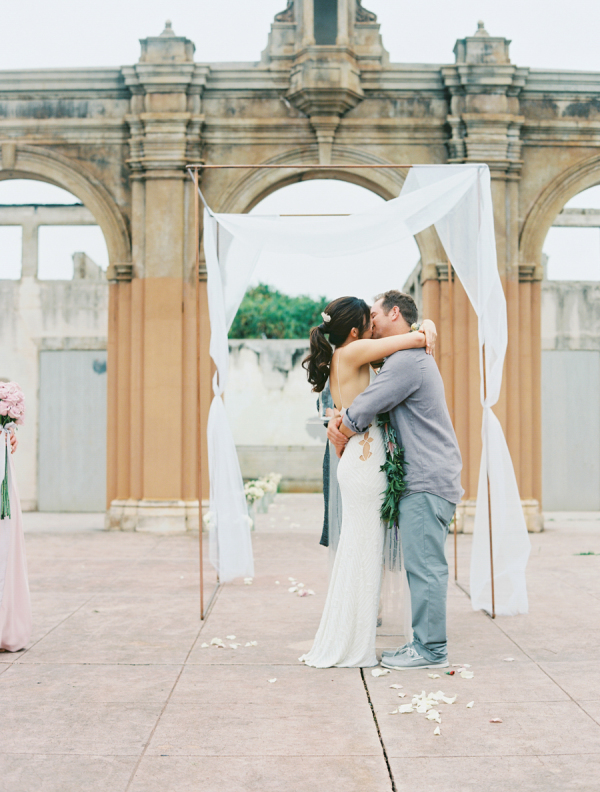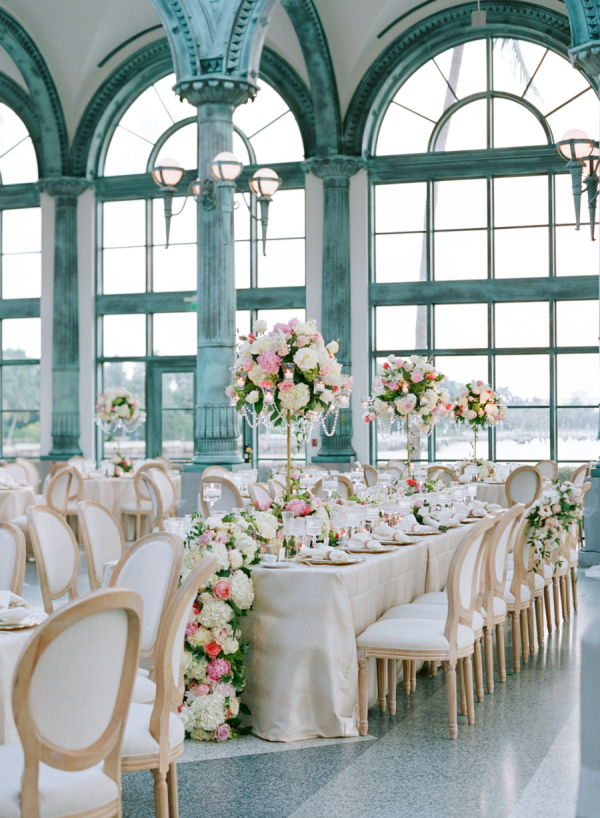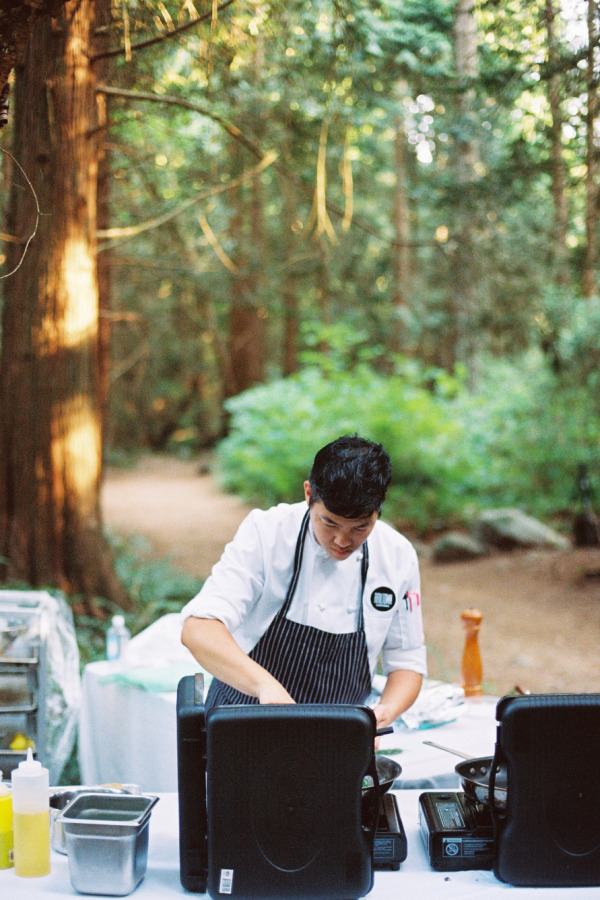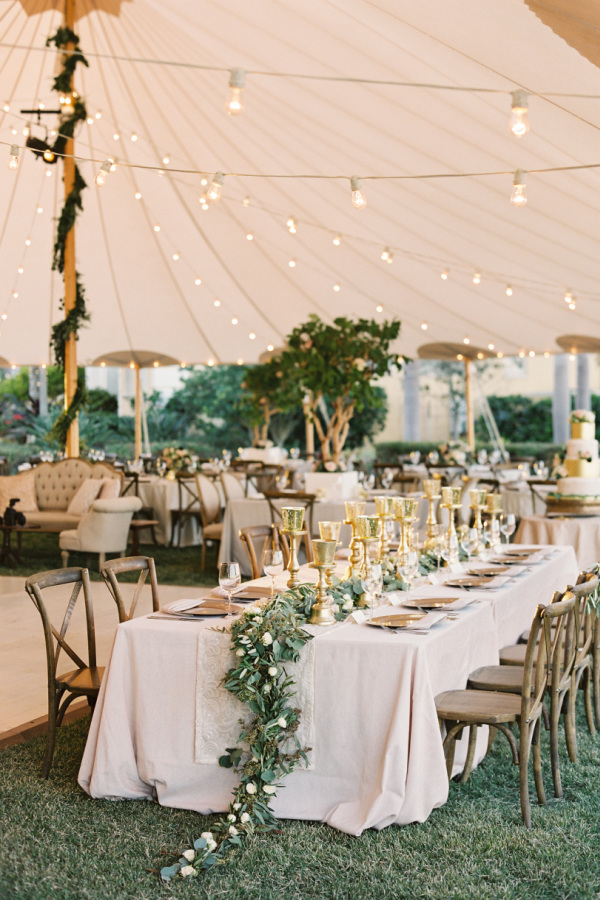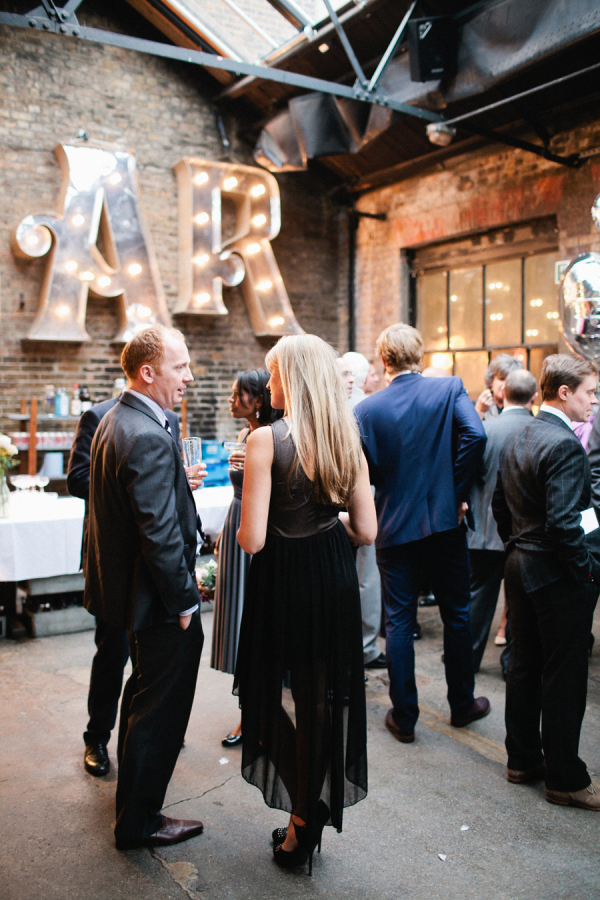Choosing a wedding venue sets the tone for what kind of celebration you’ll have. It’s no wonder many couples are forgoing the church and country club option for unique, one-of-kind locations that can showcase their personality.
If this is you, we have everything you need to know before booking a non-traditional venue.
Get to know the site.
If you’ve fallen in love with a location that doesn’t typically host weddings, like a barn in the country or an art gallery in the city, find out if the venue is comfortable with weddings, says Kate Lerman, wedding planner and owner of Chicago Vintage Weddings. Ask how many weddings the venue have hosted, and how many the on-site manager has overseen in order to get a sense of their experience level and willingness to host your celebration. Weddings differ from other events and you want the on-site team to know what they’re doing.
If a venue seems loosely managed or too good to be true, tread carefully. They may be inexperienced or not serious about their job. You should feel confident that the venue is going to stay in business for the long run, with no risk of shutting down after you fork over a deposit. A place like a museum is going to be less of a gamble than a new business which might not have the necessary infrastructure already in place.
The (challenges with the) great outdoors.
Outdoor weddings are beautiful but require a lot of work. Particularly if the venue isn’t used to hosting them. “Nothing eats up your budget like tenting,” says Kate, who’s seen clients billed more than $30,000 for an outdoor setup. “That’s a result of having to build a venue up from scratch.” Which means not only the overhead structure but climate control, bathrooms, electric, siding and flooring as well as the labor costs associated with assembly and breakdown. And tenting is a must if your reception is set outdoors in case it rains. Make sure you’re up for the challenge or have a team in place to help with the process in order to avoid frustration.
And be sure to read the fine print. You may be responsible for any property damage (like a torn up lawn or clean-up if rain creates a mess).
Consider hidden costs.
“The venue might be cheap but think of all the things you’ll need day-of,” says Kate. Does the venue charge extra for additional set-up time? Will the venue provide tables, chairs, linens, dinnerware, lighting and a sound system or do you need to rent that separately? This is something my husband and I didn’t factor in when booking a rehabbed warehouse space for our wedding venue. Consider additional factors like parking, valet and security. Some venues require union fees or charge commission fees to vendors who work on-site. Ask about these policies before booking in order to avoid out-of-budget surprises once you’ve committed.
Be mindful of vendors.
Aside from the kickback a venue might receive for having an exclusive vendor list, a recommended list of vendors ensures the team hired knows how to move in the space. A must if the venue has a challenging space like no kitchen to prep. If the venue doesn’t have a preferred vendor list, make sure the vendors you choose know what they’re getting into by doing a walk-through of the space in advance.
Speak up.
“Don’t be afraid to ask questions,” says Kate. “Managers should be responsive enough to make you feel confident that all bases are covered on the big day, especially if they’re not used to hosting weddings.” If responding to your wedding planning inquiries isn’t a top priority for the venue, make sure you are okay with that.
And if you love something off the beaten path but can’t make up your mind, Kate recommends asking the venue if you can put a soft hold on a date until you’re ready to commit.
Style Me Pretty Contributor – Ximena N. Larkin is a writer and publicist who resides in Chicago with her dog and husband. More at ximenabeltran.com
© Style Me Pretty, 2017. |
|
|
Add to
del.icio.us
Post tags: Rentals, Venue, Weddings 101
Post categories: Planning & Advice, The Blog

